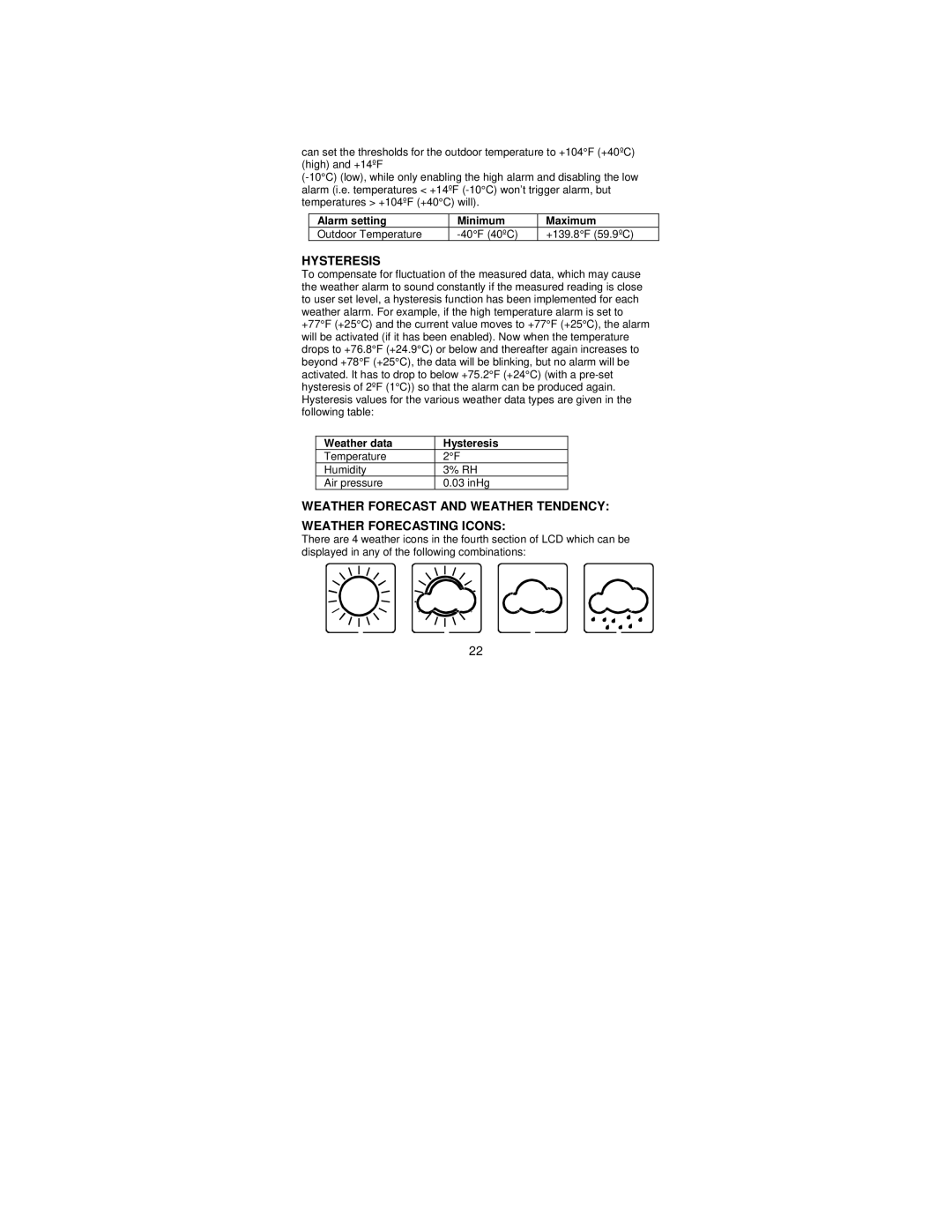
can set the thresholds for the outdoor temperature to +104°F (+40ºC) (high) and +14ºF
Alarm setting | Minimum | Maximum |
Outdoor Temperature | +139.8°F (59.9ºC) |
HYSTERESIS
To compensate for fluctuation of the measured data, which may cause the weather alarm to sound constantly if the measured reading is close to user set level, a hysteresis function has been implemented for each weather alarm. For example, if the high temperature alarm is set to +77°F (+25°C) and the current value moves to +77°F (+25°C), the alarm will be activated (if it has been enabled). Now when the temperature drops to +76.8°F (+24.9°C) or below and thereafter again increases to beyond +78°F (+25°C), the data will be blinking, but no alarm will be activated. It has to drop to below +75.2°F (+24°C) (with a
Weather data | Hysteresis |
Temperature | 2°F |
Humidity | 3% RH |
Air pressure | 0.03 inHg |
WEATHER FORECAST AND WEATHER TENDENCY: WEATHER FORECASTING ICONS:
There are 4 weather icons in the fourth section of LCD which can be displayed in any of the following combinations:
22
